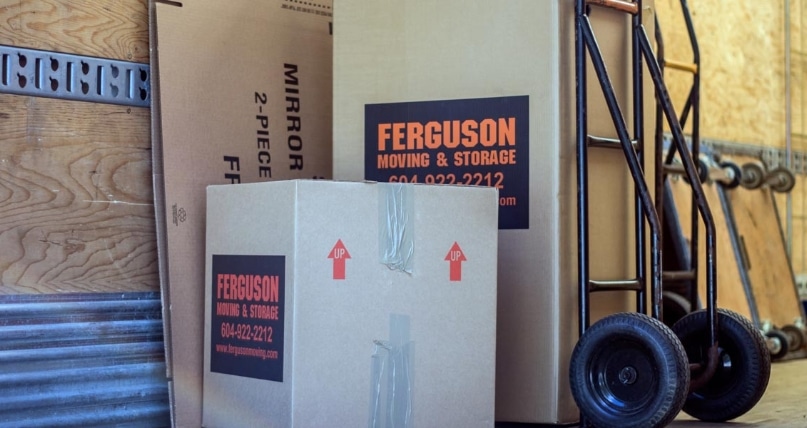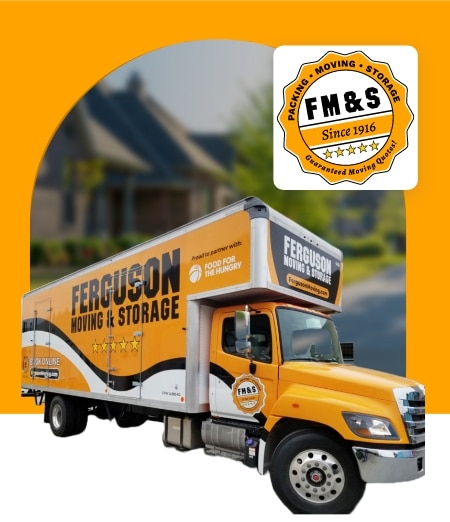- Moving Tips, Other, Relocation Moving
Metro Vancouver “Green Bin Program,” Survival Guide

Moving into Metro Vancouver? You’ll need this green bin program survival guide
If you’re moving into the Lower Mainland, you’ll notice many of the municipalities use a green bin program. So chances are you’ll need to learn how to recycle food scraps. Green bin programs can be a blessing for the environment. For example, by the City of Vancouver’s numbers, if everyone in their area recycled food scraps into their green bins, it could save 5,500 trucks worth of garbage from the landfill each year. But there’s a downside. Stored food scraps can smell really bad and can attract pests such as rats and maggots. Rotting food can mould and become very unpleasant. We’ll give you some ideas on how to cut down on the hassles associated with recycling food scraps.
A quick backgrounder on the green bin program if you’re moving to Vancouver
Some municipalities issue green containers intended for food scraps and other organic waste. The city then recycles the waste into compost. So if you’ve moved into a town with a green bin program, you can bask in the knowledge that your town is helping the environment. Some cities like Vancouver have gone so far as to penalize anyone who does not use their green bins. Which brings us to our next point…
If you can’t throw your food scraps in the garbage, how do you store them?
So you’ve moved into your beautiful new home, and you’re still trying to figure out where you should store food scraps. There are many places to keep these leftovers, but not all spots are equal. Ideally, food waste would go directly to the green bin right after each meal. But this can be very impractical. That would be like walking directly to the dumpster every time you need to throw something in the garbage. So the first step would be to get a receptacle you can keep in your home. It’s best to get something waterproof. A cardboard box won’t cut it because of possible leakage. Also, something with an airtight lid will help keep out flies and maggots while keeping odours to a minimum. If they can’t breathe in your garbage bin, they won’t stay there. A large tupperware can often suffice.
Odour busters for green containers in your home
An airtight lid isn’t always enough to stop odours. So sometimes we have to call in the cavalry. This could be anything from sprinkling baking soda over the scraps to rinsing the container with lemon juice or vinegar. Lining your bin with newspaper can help prevent food from accumulating on the walls of the receptacle. A lack of old food means fewer odours. Then, empty it into the green bin outside often. Scraps won’t smell if they don’t have time to rot.
Make sure you drain all foods of liquids before throwing them in the disposal unit. Newspapers, old pizza boxes and used paper towels can often be a godsend. Wrap them around food scraps to stifle bad smells.
Keep your food scraps cool to avoid rot
Don’t put your receptacle in the path of direct sunlight. Keep it in a shady, cool place. The colder, the better. Lower temperatures keep scraps from decomposing. The best place, if you have enough space inside, is the freezer. But before putting your food scrap container inside the freezer, spray the inside of the receptacle with oil to keep food from freezing to its walls. Airtight bags — such as Ziplocs — can make good storage containers as well. Just remember that plastics can’t be thrown into the green bin!
A final word — do research about each Metro Vancouver community’s green bin program once you’ve moved in
After moving into your new Lower Mainland neighbourhood, check with neighbours or go to city hall to ask about the pick-up times for the green bin program. Green bin pick-up schedules can be different from garbage days, depending on the city. For example, Richmond picks up both garbage and green waste at the same time every week. But Vancouver picks up green waste every week but garbage every other week. So don’t assume that you should put out the green waste at the same time as you put out the trash, or vice versa. Also, learning about pick-up schedules will help you plan when and where to store food scraps. For example, some people start moving food scraps out of their freezer a day before the pick-up time. We’d also encourage people to learn a little more about the waste and recycling programs once they’ve moved in. In the Lower Mainland, the main entity involved administering these efforts is Metro Vancouver. Check out its site to learn more.
Contact Ferguson Moving
For all your moving and storage needs, or to order a portable storage container, contact Ferguson moving at 604-922-2212 or find us online today!

Categories
Moving Tips

This is the heading
Lorem ipsum dolor sit amet, consectetur adipiscing elit. Ut elit tellus, luctus nec ullamcorper mattis, pulvinar dapibus leo.

This is the heading
Lorem ipsum dolor sit amet, consectetur adipiscing elit. Ut elit tellus, luctus nec ullamcorper mattis, pulvinar dapibus leo.
We make moves easy for you.
- Local Moving
- Long Distance Moving
- Seniors Moving
- Piano Moving
- Item Relocation
- Overnight and Long-term Storage
- Packing Supplies





